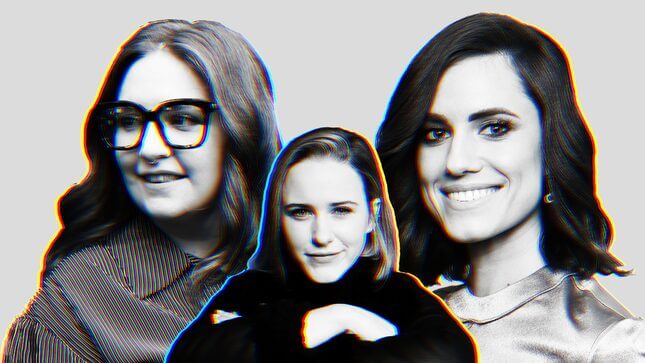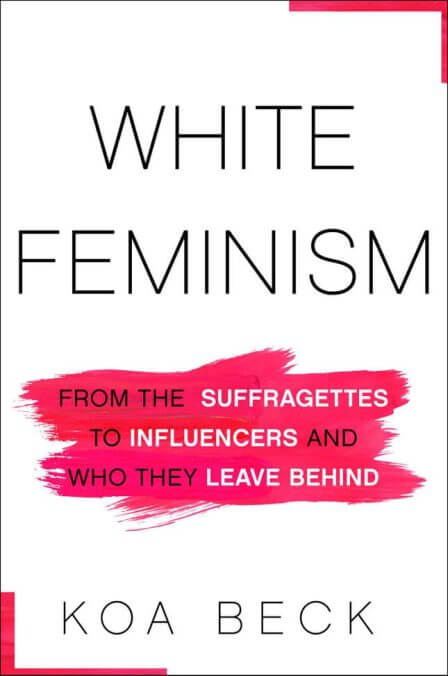The Problem With Anointing the Celebrity Feminist
In Depth
Graphic: Elena Scotti (Photos: Getty Images)
In recent years, it’s been popular for mainstream celebrity profiles to crown individual celebrities as “feminist”—something a lot of mainstream outlets were ready to do as “feminism” became trendy. The narrative of an individualized ascension within a feminist context or landscape is often popularized in this way, and issues of social justice, activist tendencies, and political ideologies are captured as highly specified singular radicalisms rather than part of bigger movements. Tellingly, engagement with gender politics or activism is centered on individual resolutions, but not structural changes. It betrays a limited understanding of social justice, without structural critique, which is fundamentally ineffectual.
In a 2017 piece on Refinery29.com called “Allison Williams Is The Feminist We Need,” published in conjunction with International Women’s Day, the actress is asked, “What other steps are you taking to feel empowered and make a difference?” Williams tells the reporter that she advocates for being vigilant about getting information “from different sources” and also urges readers to “brush up on our civics.” But, from there, she identifies engaging with an activism that speaks to her personally, invoking a very individualized comprehension and assessment of social justice:
That’s what I’m focusing on—the activism work that comes from the heart, the causes that speak to me, the stories that tug at my heartstrings or seem unfair or un-American in some way. That’s where the work should go. That’s the magic sauce that creates change.
Williams’s “magic sauce” comes from engaging with issues that “tug” personally, revealing a very limited threshold for structural change, particularly given that Williams identifies herself in the same piece as “disproportionately lucky” in the context of the activism she participates in:
To say that there has been any moment in my life when I’ve felt disadvantaged would be incredibly tone-deaf and self-unaware of me. I have been so fortunate. Have there been instances in which I think maybe I’ve been treated differently because I’m a woman? Yes—chiefly by the media. But that word— disadvantaged—is not a word that I can, in good conscience, apply to myself. I’ve been disproportionately lucky and privileged, and I intend to spend the rest of my life working off that credit by giving back and paying it forward.
That Williams is portrayed by Refinery29 as both literate of the “privileged” platform she possesses while also continuing to advocate for “causes that speak to me” reveals the logical blind alley of white feminism. The outlet has collapsed the responsibilities of social justice and feminism into a single actress, identifying her literally as “the feminist we need” despite that she shares in the interview that the scope of the issues she tends to is limited, and neglects to explore who “we” refers to in the first place. Broadly, the white feminist “we” is a common record scratch. It’s the place where they tonally and verbally try to broaden their experiences but are actually signaling to us they are narrow. Like in 2013, when author and political scientist Anne-Marie Slaughter said in a TED Talk, “But 60 years after The Feminine Mystique was published, many women actually have more choices than men do. We can decide to be a breadwinner, a caregiver, or any combination of the two.” Or when actress, director, and author Lena Dunham wrote in Vogue in 2017, “Nearly 40 years later, we find ourselves asking similar questions about our rights that we never thought we’d have to revisit.” (Dunham posing that these “questions about our rights” were effectively resolved echoes the comment made by Melanie Whelan to The Cut about her son having a CEO for a mother and that “it’s just going to be very different.” There’s the tonal assertion that a collective feminism has already happened, that a gender revolution has settled the score.)

Both statements speak to profoundly white, middle- to upper-class experience—where you can easily navigate myriad choices, where you are imbued with rights you never thought could be taken from you.
But, in 2013, the year Slaughter made those comments, national data revealed that 17.7 million women were living in poverty. And the year before Dunham’s piece appeared in Vogue, the Guttmacher Institute determined that four decades of the Hyde Amendment has meant that one in four women on Medicaid are unable to pursue their constitutionally protected right to an abortion due to cost. But it’s statements like those of both women that perpetuate a white feminist fantasy of broad-strokes changes, rights, and gender wins, sometimes to the point of rewriting history and ignoring present realities.
These same dynamics cause the Williams piece to almost turn over on itself. You have an actress both resisting but, in other moments, embracing an individualized understanding of feminism.
This narrative is similarly employed in a 2019 profile from Bustle.com titled “Rachel Brosnahan Is Standing on the Shoulders Of Giants,” signaling the many women, both in her personal life as well as her industry, that have made her commercial and professional success possible. Yet, when identifying Brosnahan’s activism, Bustle.com tethers her politics to a narrative of self-empowerment:
-

-

-

-

-

-

-

-

-

-

-

-

-

-

-

-

-

-

-

-

-

-

-

-

-

-

-

-

-

-

-

-

-

-

-

-

-

-

-

-








































